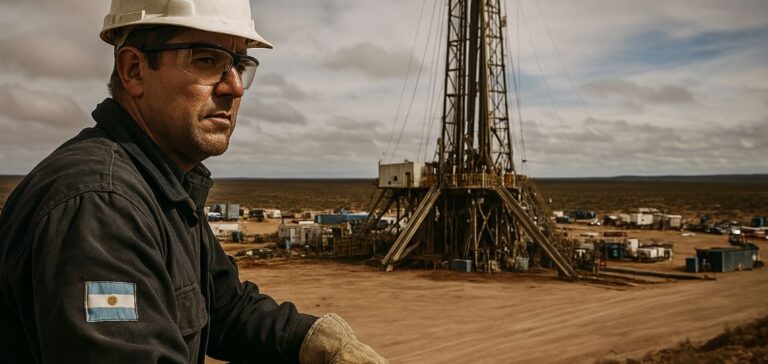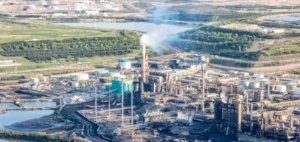Argentina’s oil production could see an increase of nearly 16% in 2025 compared to the previous year, according to recent forecasts by Argentina’s Chamber of Hydrocarbon Exploration and Production (CEPH). This figure represents approximately 830,000 barrels per day (bpd), closely approaching the historic record of 847,000 bpd reached in 1998. The significant growth primarily stems from the Vaca Muerta shale formation, located in Patagonia. This region currently attracts a substantial portion of the country’s energy investments.
Vaca Muerta at the heart of energy ambitions
YPF Sociedad Anónima (YPF), Argentina’s leading oil company, plans to invest $3.3 billion in 2025 exclusively in the development of oil wells in Vaca Muerta. This sum represents around two-thirds of its total investment budget of $5 billion for the year. YPF’s goal is to increase its regional production to approximately 200,000 bpd by the end of the year. Other international companies, such as Chevron Argentina and Shell Argentina, are also involved in projects in this strategic region.
Transport infrastructure is experiencing accelerated development to support this increase in production. The “Vaca Muerta Sur” (VMOS) project, launched in February 2025, involves constructing a 437-kilometer pipeline linking Vaca Muerta to the new maritime terminal at Punta Colorada. With an initial capacity of 180,000 bpd, this infrastructure is expected to expand to 550,000 bpd by 2027. This pipeline marks a significant advancement in the country’s export capabilities, alleviating existing logistical constraints.
Lifting restrictions and commercial prospects
Additionally, regulatory easing by the government of President Javier Milei represents another critical driver of growth. Since the removal of price caps on oil, domestic prices have aligned with international markets. According to CEPH, this convergence provides greater economic predictability for investors, thus reducing uncertainty in the oil sector. Furthermore, Argentine authorities plan to completely lift foreign exchange controls by the end of 2025, potentially facilitating investment flows and profit repatriation.
In this favorable context, Argentina could see its energy trade surplus reach $7.5 billion by 2025, up from $1.32 billion in the first quarter of 2025, marking a 35% increase compared to the same period in 2024. This increase reflects not only the rise in production but also an enhanced capacity to export to international markets. Such developments potentially position the country as a more influential player in global oil markets.






















